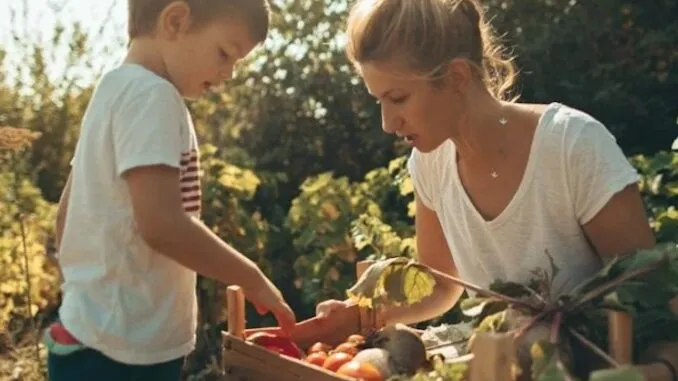by Sean Adl-Tabatabai, The Peoples Voice:
 The public must be prohibited from growing their own food in order to save the planet from so-called “global boiling,” WEF-funded scientists have warned.
The public must be prohibited from growing their own food in order to save the planet from so-called “global boiling,” WEF-funded scientists have warned.
According to a new study from the WEF-funded University of Michigan, growing your own food in urban settings can emit five times as much carbon as those grown in “conventional” settings.
TRUTH LIVES on at https://sgtreport.tv/
Theorganicprepper.com reports: Scientists say that the emissions don’t come from the vegetables themselves but from infrastructure in the form of sheds and raised beds. They suggest that, for those who must garden, growing high-carbon input foods like tomatoes and asparagus is less harmful. Those foods take a lot of carbon regardless of where they’re produced. Asparagus, in particular, is often flown into the U.S. from around the world.
The article’s suggestions to “grow green” were to:
- Grow tomatoes
- Grow asparagus
- Use recycled wood and building materials
- Repair, don’t replace, aging sheds and garden beds
- Grow 90% flowers, not foods, to offset emissions with “social benefits”
I do grow tomatoes and asparagus because I like them, not because of “climate change.” My shed is over twenty years old, as I imagine a lot of sheds are. Who would put up a new shed every year?
This article does not even pretend to address the carbon offset by producing your own food rather than getting it transported into cities. I’ve been fortunate enough to live in a few agricultural valleys where I can get many of my basics (carrots, potatoes, cabbage, onions) grown within a 50-mile radius.
However, I’ve also spent time in bigger metropolitan areas, where you just can’t. The Chicago metro area, for example, extends for dozens of miles in every direction from the lake. There are some really nice farmers’ markets in the city and the suburbs, but in general, your food in Chicago is coming from a significant distance. Any way you can shorten that will be beneficial in terms of carbon offsets.
And this article doesn’t even pretend to quantify the myriad other benefits of gardening, benefits that also reduce costs to the environment.
Rebuttal: Growing your own food can actually benefit the environment.
I began gardening as a young at-home mom with multiple children. We lived in a suburban area. We had to drive almost everywhere. And because we were in Texas, with its limited publicly-owned lands, if I wanted to get out of the house, that meant we were spending money.
My family was young, energetic, and trying to make ends meet on a single income. Our suburban garden paid for itself in terms of money saved at the grocery store within four years. However, I realized that the project was “worth it” almost immediately. Time spent playing in the garden was time I did not have to spend driving around town to various playgrounds or children’s outings. As the kids grew older, the garden turned into an endless science project that I didn’t have to pay for. Our continually fed and used compost pile kept food out of landfills. This at-home entertainment allowed us to reduce consumption without reducing our quality of life.
And the money/kid entertainment value is only the beginning. Gardens add beauty and uniqueness to suburban lots. I can’t think of many sights more depressing than row upon row of cookie-cutter houses with cookie-cutter yards. Think of the beginning of Harry Potter, when they introduce the Dursleys. Gen Xers can hearken back to the music video for Rush’s “Subdivisions.”
Gardens change that. A lot of people have to live in cookie-cutter homes for one reason or another. A skilled gardener can make any lot interesting and unique.
Read More @ ThePeoplesVoice.tv





